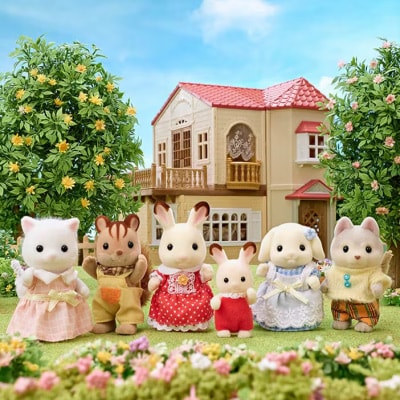EPOCH Group is working as a member of the toy industry for the wonderful life of adults and children all over the world. We work to carry out and keep our corporate philosophy “To inspire dreams and excitement in children, and playfulness in adults”. Find out how we are working on here. Continue reading to learn more about our commitment to responsible business practices.
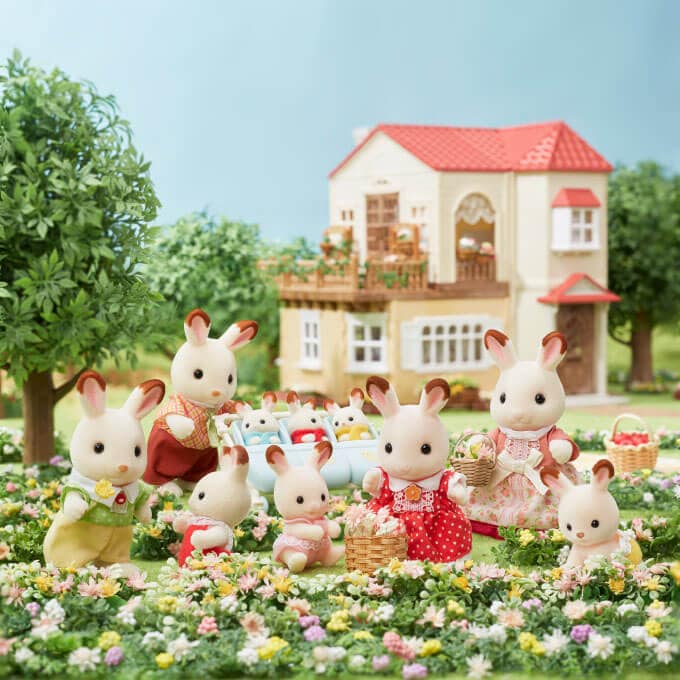

We know Safety and Quality are essential and top priority for toys. So, we design and develop children's toys based on toy safety standards (ISO8124, EN71, ASTM F963, ST), and national laws and regulations (Toy Safety Directive 2009/48/EC, CPSIA/USA, etc). We are producing our top brands Sylvanian families®/ Calico Critters® and Aquabeads® etc, at our own factories, whose quality control are monitored by the "EPOCH Quality Standards".
For example, we conduct Physical, Flammability and Chemical testing at third-party testing laboratories to confirm our toys adhere to laws and regulations. We are also monitoring substances of very high concern such as phthalate ester plasticizers. Our toys are checked and reviewed at multiple stages, from design to manufacturing.
We also have proprietary quality standards. For example, our Sylvanian Families®/ Calico Critters® products undergo checks to ensure that the seams in their clothing are strong enough, the parts that will be moved repeatedly are durable enough, and the products will not be altered under high or low temperatures.
Many of our products are produced in factories that have earned ISO 9001 (Quality Management) certification*7, and the utmost attention is paid to quality in all of the production processes. Inspections are conducted when we receive the parts and materials, during each production process, and when the products are completed, and we are constantly working to improve our processes.
Before our products are shipped, they undergo not only an in-house check but a third-party check by an external testing body, which verifies that the completed products are compliant with laws, regulations, and standards.
*1 About Toy Safety Directive 2009/48/EC
An EU Toy Safety Directive. Toys sold in the European Union (EU) must be proven to meet the various requirements stipulated by this directive. Hazards in toys are identified based on their intended use and things children are likely to do with them, with the aim of reducing accidents associated with toys.
*2 About CPSIA/USA
Manufacturers must prove that all products to be sold in the USA are compliant with the Consumer Product Safety Improvement Act (CPSIA). This law has a particular focus on children’s products, which it defines as products designed or intended to be used by persons aged 12 and under.
*3 About ST
A toy safety standard established by the toy industry to improve the safety of toys sold in Japan. The standard covers mechanical and physical properties, inflammability, and chemical properties. Toys that have been approved by the designated testing bodies of the ST standard are allowed to put the Safety Toy Mark (ST Mark) on their products or packages. ST Marks on the toys show that the toys are recommended by the industry for being carefully manufactured with regards to safety.
*4 About ISO8124
An international standard developed by the International Organization for Standardization (ISO). The purpose of this standard is to minimize potential hazards associated with toys and provide comprehensive test methods for toy products.
*5 About EN71
A safety standard established under the EU toy safety requirements. This standard must be followed in all cases where toys for children aged under 14 are produced and sold in EU countries. The standard seeks to reduce hazards in areas that are difficult for consumers to judge, and stipulates specific toy safety inspections from various angles, including the target age group and purpose of use.
*6 About ASTM F963
An American toy standard developed by the American Society for Testing and Materials (ASTM). It stipulates requirements and test methods for toys intended for use by children aged under 14, and toys must meet this standard in order to be sold in the USA.
*7 About ISO9001
A standard established by the International Organization for Standardization for quality management systems with the purpose of improving the quality of products and services provided by companies and other organizations. Facilities must pass a screening in order to receive this certification.
The process of reflecting regulations on products
Design
Develop
Production
We collect information about toys from all over the world for research and improving our products continually. EPOCH is a member of both the Toy Association (in the United States) and TIE (Toy Industries of Europe), and each branch belongs to a local toy association to catch the latest trends of toys, laws and regulations. And they also report feedback from customers and consumers about our products.
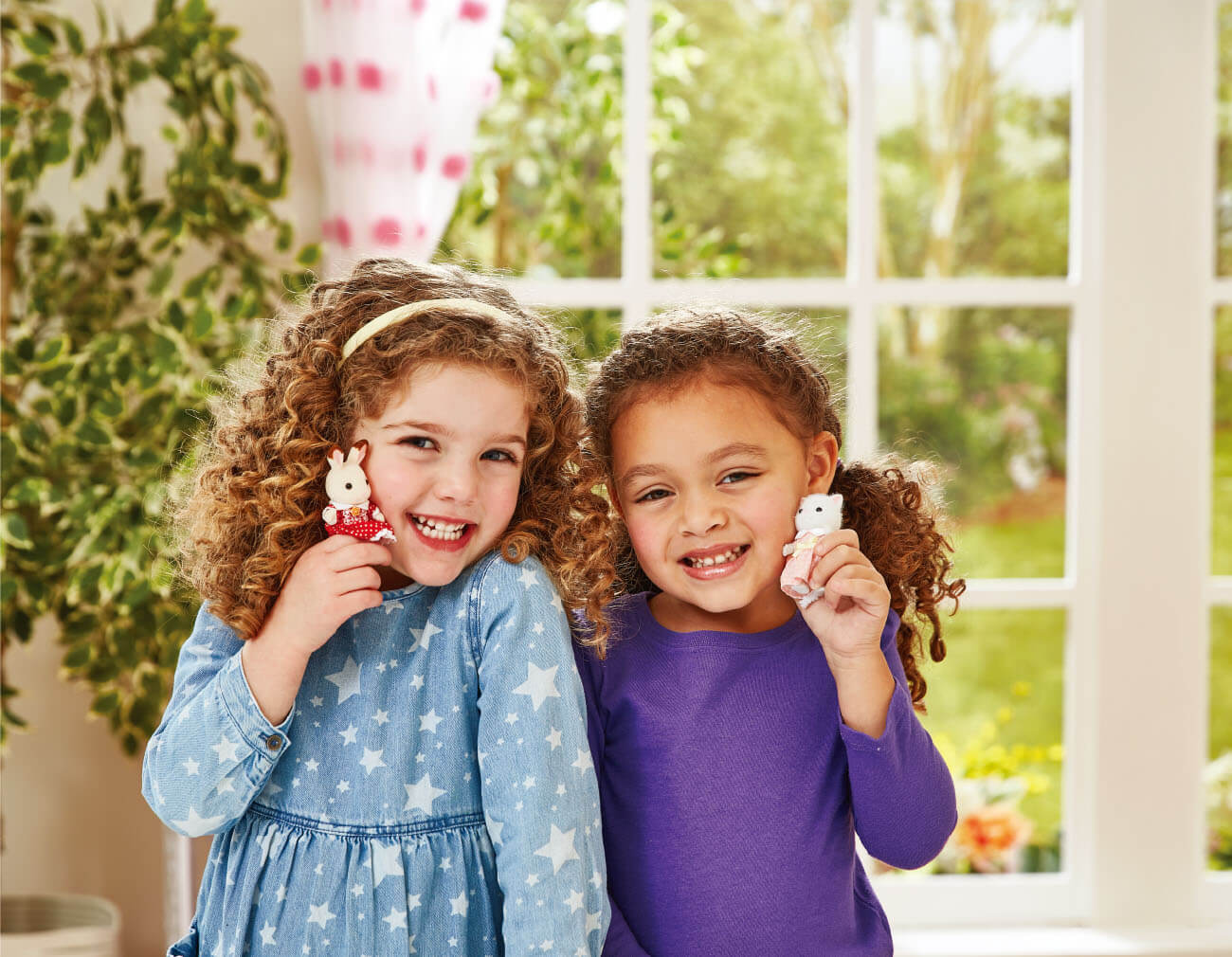

We recognize the need for responsible supply chain management. With reference to International Labour Organization (ILO)’s standards and UN’s Guiding Principles on Business and Human Rights, we have formulated policies for occupational safety and health at each factory and ethical procurement that takes human rights into consideration without child labor and forced labor.
Our brands such as Sylvanian Families®/ Calico Critters®, Aquabeads®, and EPOCH Games are manufactured at factories which are satisfied the quality management system ISO9001 and the ICTI Ethical Toy Program (IETP). We have monitored factories’ Compliance, Human rights, and Environment, Health and Safety (EHS) by third party audits.
Factories are prohibited to break business integrity, such as corruption, bribery, fraud and so on. Employees are provided proper rest, safety measures and equipment and are continuously trained to respond to emergency situations.
*8 About the ICTI Ethical Toy Program
The ICTI Ethical Toy Program (IETP) is a code of conduct established for the purpose of creating and maintaining legally compliant, fair, safe and healthy environments in the work areas of factories where toys are produced. There are various requirements, including prohibition of child labor and the adoption of fireproofing and evacuation routes, and facilities must pass a screening in order to receive this certification.
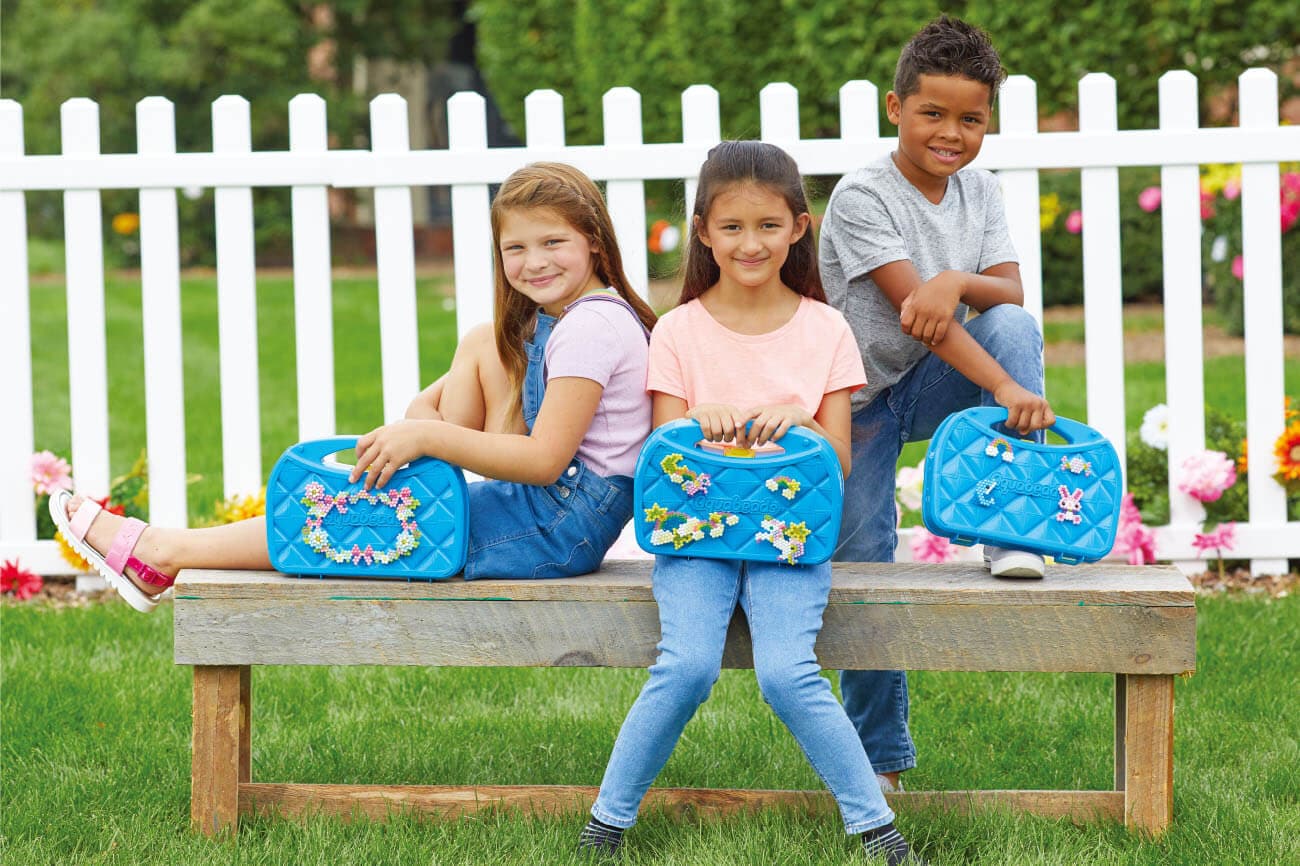

EPOCH Group aims to pass on a sustainable society and global environment to generations of children. We carry out environmentally friendly efforts at each stage of design, production, distribution, and sales.
For packaging materials, we reduce the use of plastic, while increasing the use of recyclable materials. We will continue this effort in the future.
Also in product design, we are working to reduce amount of plastic used.
In addition, in improving the utilization rate of recycled materials in our manufacturing processes, we are also working to reduce the amount of auxiliary materials and energy used.
We are also working to reduce defects and waste in our manufacturing and logistics operations, develop production facilities that can be used for longer periods of time, and reduce superfluous packaging and waste loss during our production processes.
Blister packaging material has been changed from polyvinyl chloride (PVC) to recyclable PET material.
To make it easier to recycle, surface laminating with polypropylene (PP) on paper packaging has been eliminated.
Ended use of cable ties with wires that fasten toys inside packaging because it is difficult to separate and recycle.
In order to reduce amount of paper used, packaging of products has been changed from a standard box to sleeve-shaped packaging.
Printing ink for packaging of major products, we stopped using mineral oil-containing inks that hinder recycling and switched to vegetable oil inks.
To reduce material consumption and increase the recycling rate for Sylvanian Families® (Calico Critters®) and Aquabeads® sold all over the world, we are utilizing technological innovations in manufacturing methods. We are continuously working to reduce not only amount of plastic used, but also the amount of paint and adhesives used. This also contributes to reducing the amount of water used in factories. These are just a few of the things we continue to work on.
Through the ICTI Ethics Toy Program, we have proper management to comply with local laws regarding environmental emissions of our factories.
We have taken various measures to make our jigsaw puzzles more environmentally friendly, including making them from recycled paper (chip board), eliminating plastic bulk-breaking trays and switching from sponge (plastic) to paper for the parts used to apply glue.
Colored PET materials that are not suitable for recycling will be gradually changed to transparent PET.
The paper scoop has been eliminated for some of our jigsaw puzzle products. Instead, users can cut out a section of the packaging to use as a scoop.
We are also adopting the latest digital technology to reduce the volume of test printing paper used in our planning and development processes.
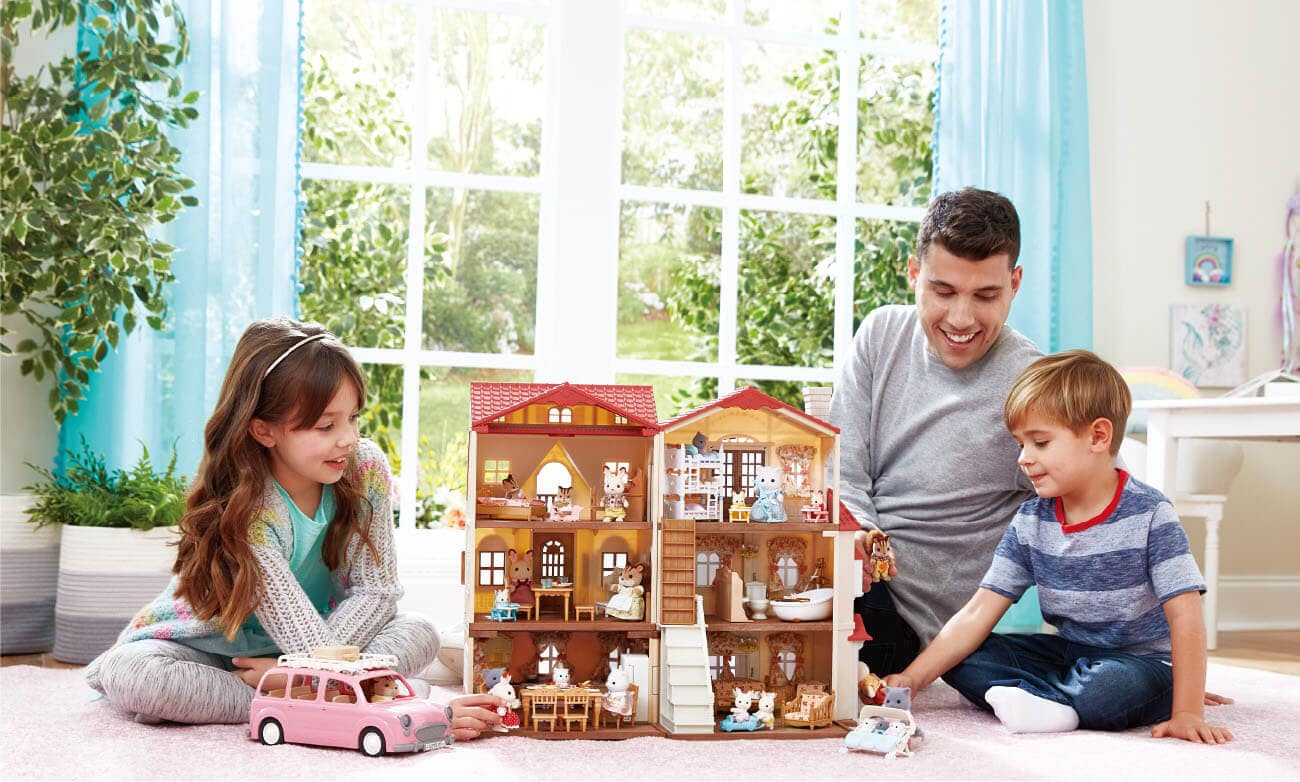
The EPOCH Group plans to continue working on initiatives like the examples above to design environmentally friendly products and packaging and eliminate waste in our production processes.
In addition to designing environmentally friendly products, we are focusing on product development that encompasses elements that will make our customers want to play with our products again and again, elements creating depth that grows each time our customers play with our products, and elements that allow for many different kinds of play and provide appeal for a wide range of ages.
This will increase our customers’ attachment to our products so that they remain a part of our customers’ lives from childhood through adulthood. The creation of evergreen products like these is our contribution to society.
